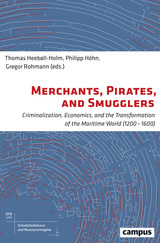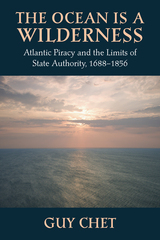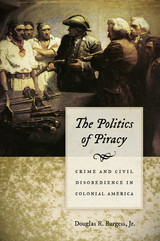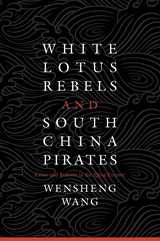

Chet shows how the traditional focus on the growth of the modern state overlooked the extent to which old attitudes and cultural practices continued to hold sway. Even as the British government extended its naval, legal, and bureaucratic reach, in many parts of the Atlantic world illegal trade was not only tolerated but encouraged. In part this was because Britain's constabulary command of the region remained more tenuous than some have suggested, and in part because maritime insurance and wartime tax policies ensured that piracy and smuggling remained profitable. When Atlantic piracy eventually waned in the early nineteenth century, it had more to do with a reduction in its profitability at port than with forceful confrontation at sea.
Challenging traditional accounts that chronicle forces of civilization taming a wild Atlantic frontier, this book is a valuable addition to a body of borderlands scholarship reevaluating the relationship between the emerging modern state and its imperial frontiers.


Since the rise of Napster and other file-sharing services in its wake, most of us have assumed that intellectual piracy is a product of the digital age and that it threatens creative expression as never before. The Motion Picture Association of America, for instance, claimed that in 2005 the film industry lost $2.3 billion in revenue to piracy online. But here Adrian Johns shows that piracy has a much longer and more vital history than we have realized—one that has been largely forgotten and is little understood.
Piracy explores the intellectual property wars from the advent of print culture in the fifteenth century to the reign of the Internet in the twenty-first. Brimming with broader implications for today’s debates over open access, fair use, free culture, and the like, Johns’s book ultimately argues that piracy has always stood at the center of our attempts to reconcile creativity and commerce—and that piracy has been an engine of social, technological, and intellectual innovations as often as it has been their adversary. From Cervantes to Sonny Bono, from Maria Callas to Microsoft, from Grub Street to Google, no chapter in the story of piracy evades Johns’s graceful analysis in what will be the definitive history of the subject for years to come.



Early in the seventeenth-century boom of seafaring, piracy allowed many enterprising and lawless men to make fortunes on the high seas, due in no small part to the lack of policing by the British crown. But as the British empire grew from being a collection of far-flung territories into a consolidated economic and political enterprise dependent on long-distance trade, pirates increasingly became a destabilizing threat. This development is traced by sociologist Matthew Norton in The Punishment of Pirates, taking the reader on an exciting journey through the shifting legal status of pirates in the seventeenth and eighteenth centuries.
Norton shows us that eliminating this threat required an institutional shift: first identifying and defining piracy, and then brutally policing it. The Punishment of Pirates develops a new framework for understanding the cultural mechanisms involved in dividing, classifying, and constructing institutional order by tracing the transformation of piracy from a situation of cultivated ambiguity to a criminal category with violently patrolled boundaries—ending with its eradication as a systemic threat to trade in the English Empire. Replete with gun battles, executions, jailbreaks, and courtroom dramas, Norton’s book offers insights for social theorists, political scientists, and historians alike.


The reign of Emperor Jiaqing (1796–1820 CE) has long occupied an awkward position in studies of China’s last dynasty, the Qing (1644–1911 CE). Conveniently marking a watershed between the prosperous eighteenth century and the tragic post–Opium War era, this quarter century has nevertheless been glossed over as an unremarkable interlude separating two well-studied epochs of great transformation. White Lotus Rebels and South China Pirates presents a major reassessment of this misunderstood period by examining how the emperors, bureaucrats, and foreigners responded to the two crises that shaped the transition from the Qianlong to the Jiaqing reign.
Wensheng Wang argues that the dramatic combination of internal uprising and transnational piracy, rather than being a hallmark of inexorable dynastic decline, propelled the Manchu court to reorganize itself through a series of modifications in policymaking and bureaucratic structure. The resulting Jiaqing reforms initiated a process of state retreat that pulled the Qing Empire out of a cycle of aggressive overextension and resistance, and back onto a more sustainable track of development. Although this pragmatic striving for political sustainability was unable to save the dynasty from ultimate collapse, it represented a durable and constructive approach to the compounding problems facing the late Qing regime and helped sustain it for another century. As one of the most comprehensive accounts of the Jiaqing reign, White Lotus Rebels and South China Pirates provides a fresh understanding of this significant turning point in China’s long imperial history.
READERS
Browse our collection.
PUBLISHERS
See BiblioVault's publisher services.
STUDENT SERVICES
Files for college accessibility offices.
UChicago Accessibility Resources
home | accessibility | search | about | contact us
BiblioVault ® 2001 - 2025
The University of Chicago Press









